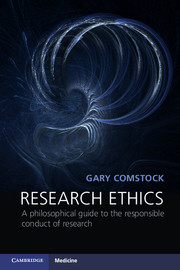3 - Beware intuition
Published online by Cambridge University Press: 05 February 2013
Summary
Egoism has much to recommend it. For one thing, it seems consistent with what biology suggests about the way the moral system might have evolved. Imagine our ancestors on the African plain competing for the attention of mates. Individuals who were indifferent about, unaware of, or insufficiently attentive to their own interests would be at a decided disadvantage. If individuals didn’t look out for themselves, then who would look out for them? Those Homo sapiens skilled at getting what they wanted almost certainly had fitness advantages over individuals who were clueless, especially when it came to maximizing one’s chances of finding a partner willing to have children with them. It seems, therefore, that egoists would win out over non-egoists, for they would outcompete whoever was not willing to scratch and claw to fulfill their needs.
Egoists must be conscious of observation bias
But things may not be so simple for the egoist. The reason is that many self-interested individuals have survived over time and, following this line of thought, many egoists must now exist. All of them, according to this story, must have exquisite means of reading, anticipating, and responding to others’ behaviors, too. So if I’m an egoist today and I want to try to get away with slighting others in the contemporary research world, then, I will have my work cut out for me. In this chapter, we will explore the reasons that it’s hard out there for an egoist.
- Type
- Chapter
- Information
- Research EthicsA Philosophical Guide to the Responsible Conduct of Research, pp. 68 - 78Publisher: Cambridge University PressPrint publication year: 2013



